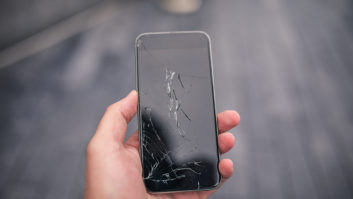Acouple of years ago during the holiday season, and just a week or two before traveling to International CES, I was asked around the dinner table by a few friends and family this question: “What’s the new thing at CES going to be this year?”
I said, “The Internet of Things.”
When everyone looked like they had a question mark on their faces, I parroted what an expert at a seminar said a few weeks before, namely, “Every object will eventually be connected to the Internet. For instance, new refrigerators will sense if you need milk and will either send a message to the store to order it or message you to buy it.”
More than a few around the table rolled their eyes and blurted out, “Who needs that?” and we moved onto other subjects.
Well B.K. Yoon, Samsung Electronics’ president/CEO, opened plenty of eyes and ears in his CES keynote, by clearly stating the benefits of the Internet of Things (IoT). It “not something that’s in the distant future,” but has begun now that will help us “live healthier, more productive lives” at home, at work or when we are traveling. And, he deftly noted, IoT is “not about things. … We have to show consumers what is in it for them.”
But Yoon did outline some key backroom stuff, namely that the IoT experience must be open without the digital “walled gardens” of the past two decades or more. so all the sensors and devices “will work with each other.” He said Samsung is committed to making “open” IoT devices and that by 2017 90 percent of its line would be IoT products.
That would mean that every device on the Internet – from smartphones to selfdriving cars, debit cards to refrigerators, data banks for Internet retailers, bank systems, wearables monitoring your vitals, social media accounts, your 4K or 8K TVs – and everything in between – will be connected and communicate with each other.
An open format is a laudable, altruistic goal. But we all know that the CE and PC businesses for years have been all about format wars, so let’s see how that turns out.
Yoon, along with guests Jeremy Rifkin, president of The Foundation of Economic Trends; Alex Hawkinson, cofounder of SmartThings, a unit of Samsung; Hosain Rahman, chief executive of Jawbone; and Elmar Frickenstein, senior VP of BMW Group, passionately explained the tremendous economic and lifestyle benefits IoT devices and systems can provide. (If you want all the details, watch the entire keynote on You- Tube.)
For retailers that sell, install and maybe even service CE and major appliances, IoT coupled with home automation and having common systems for home, work and vehicles should mean plenty of sales and profits. If nothing else, the electronics/appliance market has shown over the years that complexity equals profitability.
But one has to look at the real world to see the potential for disasters in a new IoT landscape. During the keynote I kept thinking of the ongoing furor about the Sony hack that occurred several weeks prior to CES.
If privacy is not a thing of the past, it is evaporating about as quickly as putting ice cubes in a hot frying pan.
If IoT really does occur in all of its open-access glory without tremendously improved Internet security, hackers worldwide will have a field day.
And then you have the politicians in Washington who, at the very least (and I do mean least), will debate IoT safeguards ad nauseam to make sure their special interest friends either get a cut of the action, or don’t get hurt.
B.K. Yoon outlined a wonderful future, but as it is with any technological advance, I have to wonder how it may be subverted by hackers, as well as a host of special interests, who will take advantage of IoT and subvert it for their own purposes.











